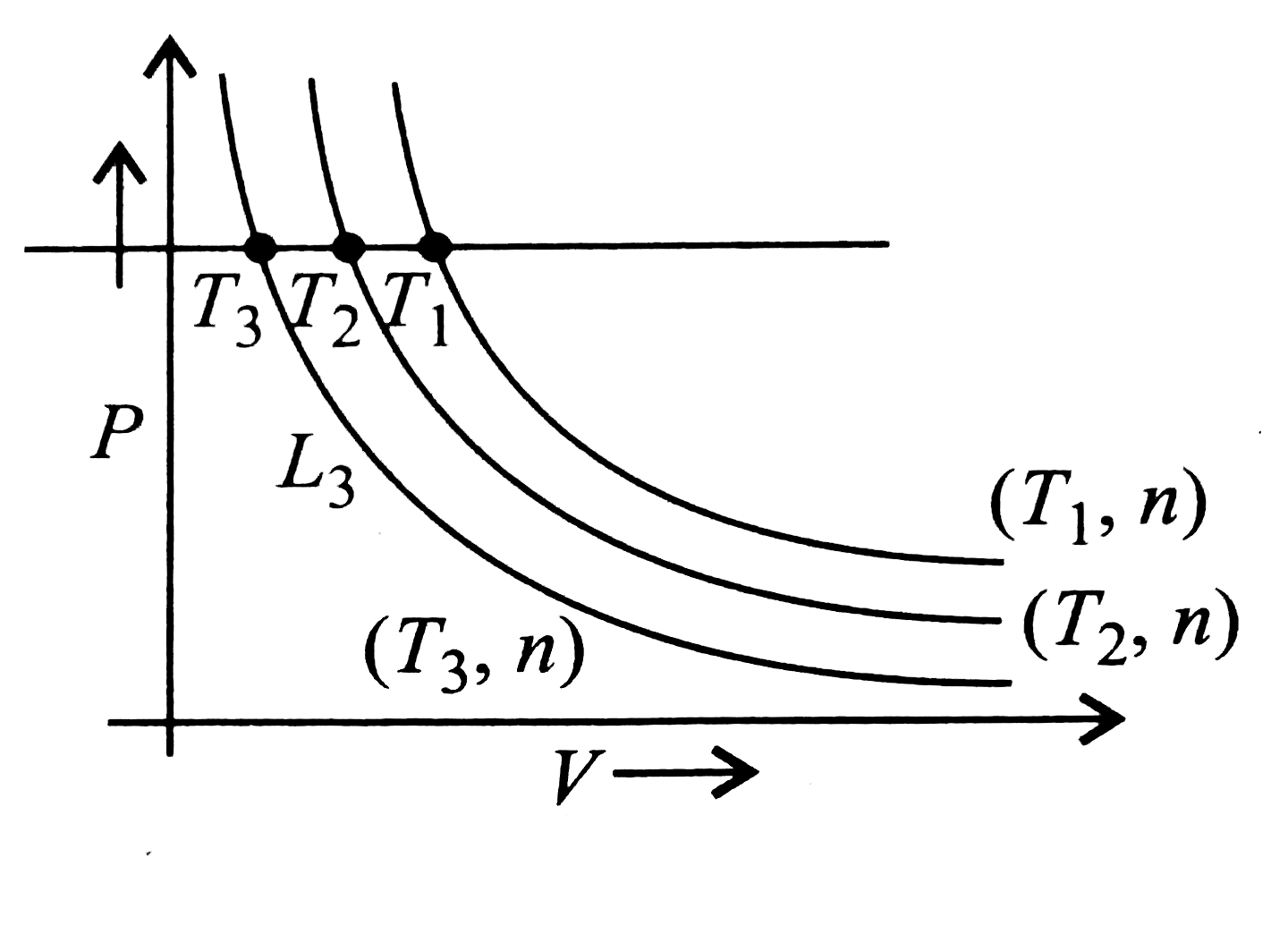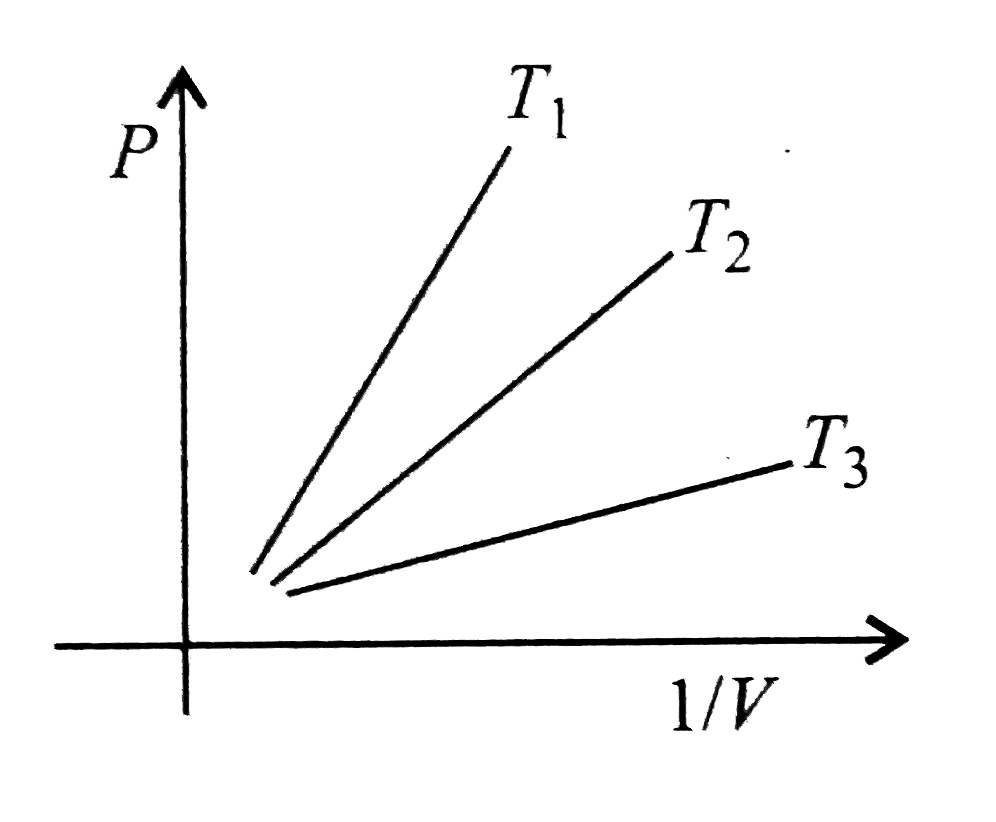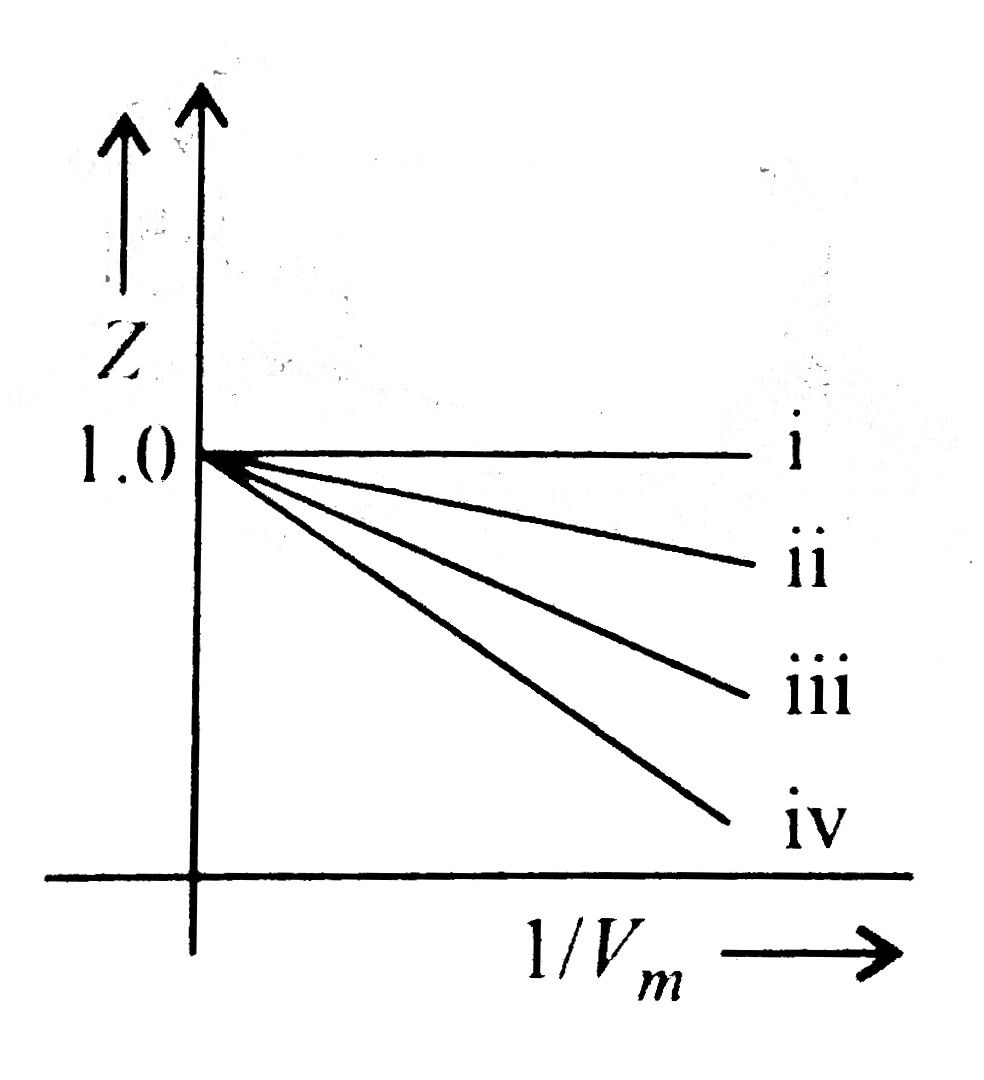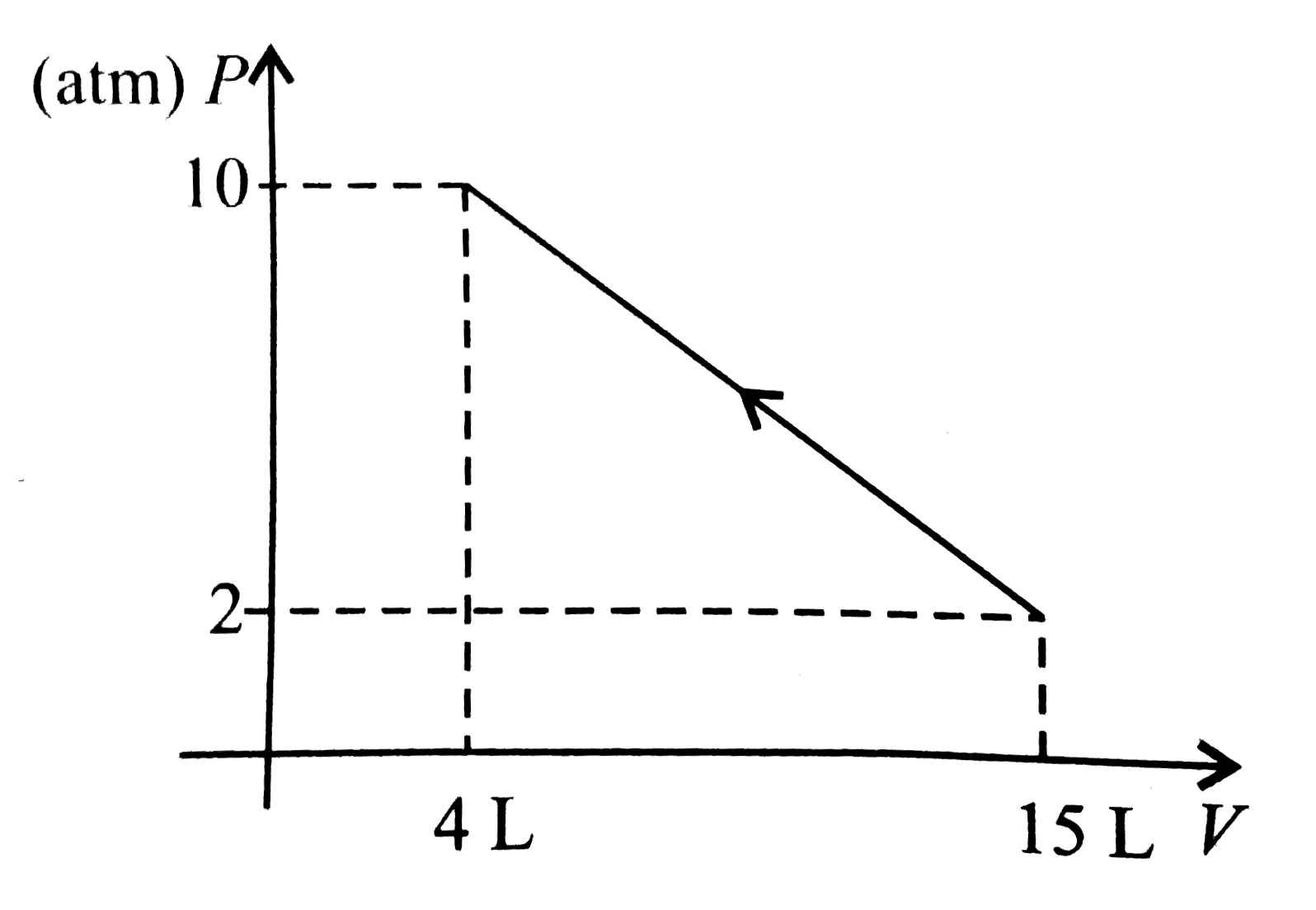Solved Example from CENGAGE CHEMISTRY (HINGLISH) STATES OF MATTER for Class 11
| Class 11 | CHEMISTRY |
| Chapter | STATES OF MATTER |
| CENGAGE CHEMISTRY (HINGLISH) | Solved Example |
| Medium | English |
| Academic Year | 2023-2024 |
Question 22
Two flacks of equal volume connected by a narrow tube of negligible volume are filled with N2 gas. When both are immersed in boiling water, the gas pressure inside the system is 0.5atm. Calculate the pressure of the system when one of the flasks is immersed in an ice-water mixture keeping the other in boiling order.View SolutionQuestion 25
A ballon blown up with 1 mole of gas has a volume of 480mL at 5∘C The balloon is filled to (7/8) th of its maximum capacity Suggest
(a) Will the balloon burst at 30∘C
(b) The minimum temperature at which it will burst
(c ) The pressure of gas inside the balloon at 5∘C
(d) The pressure of gas when balloon bursts .View SolutionQuestion 45
When 2g of a gas A is introduced into an evacuated flask kept at 25∘C, the pressure is found to be 1atm. If 3g of another gas B is then heated in the same flask, the total pressure becomes 1.5atm. Assuming ideal gas behaviour, calculate the ratio of the molecular weights MA and MB.View SolutionQuestion 72
A straight glass tube has two inlets x and y at two ends. The length of the tube is 200cm. HCl gas through inlet x and NH3 gas through inlet y are allowed to enter the tube at the same time. White flames first appear at a point P inside the tube. Find the distance of P from x.View SolutionQuestion 80
A cinema hall has equidistant rows 1m apart. The length of the cinema hall is 287m and it has 287 rows. From one side of the cinema hall, laughing gas (N2O) is released and from the other side, weeping gas (C6H5COCH2Cl) is released. In which rows, spectors will be laughing and weeping simultaneously?
 View Solution
View SolutionQuestion 95
Two bulbs A and B of equal capacity are filled with He and SO2, respectively, at the same temperature.
(a) If the pressures in the two bulbs are same, what will be the ratio of the velocities of the molecules of the two gases?
(b)At what temperature will the velocity of SO2 molecules become half of the velocity of He molecules at 27∘C?
(c) How will the velocities be affected if the volume of B becomes four times that of A?
(d) How will the velocities be affected if half of the molecules of SO2 are removed from B?View SolutionQuestion 121
The critical temperature (Tc) and pressure (Pc) of NO are 177K and 6.48MPa, respectively, and that of Cl4 are 550K and 4.56MPa, respectively. Which gas (a) has the smaller value for the van der Waals constant b, (b) has the smaller value for constant a, (c) has the larger critical volume, and (d) is most nearly ideal in behaviour at 300K and 1.013MPa.View SolutionQuestion 133
Two flasks A and B have equal volumes. The molecules in flask A are moving two times faster than the molecules in flask B. The number of molecules in flask A is eight times the number of molecules in flask B. Which of the following is true about the number of collisions with the walls?View SolutionQuestion 134
Two flasks A and B have equal volume at 100K and 200K and have 4atm and 1atm pressures, respectively. The flasks A contains H2 gas and B contains CH4 gas. The collision diameter of CH4 is twice that of H2.
(i) Which of the following is true about the mean free path (λ) of the molecules?
(a) λ of H2 is twice that of CH4.
(b) λ of CH4 is twice that of H2.
(c) λ of H2 is four times that of CH4.
(d) λ of CH4 is four times that H2.
(ii) Which of the following is true about the viscosity of the gases?
(a) Viscosity of H2=2× viscosity of CH4
(b) Viscosity of H2=3× viscosity of CH4
(c) Viscosity of H2= viscosity of CH4
(d) Viscosity of H2=12× viscosity of CH4View SolutionQuestion 135
Two equal volume flasks cotaining equal masses of H2 and CH4 are at 100K and 200K, repectively. The molecular diameter of CH4 is twice that of H2.
(i) Which of the following statement about Z1 (number of collisions per molecule per cm3 per second) is true? (a) Z11 of H2=2Z1 of CH4
(b) Z11 of H2=4Z1 of CH4
(c) Z11 of H2=Z1 of CH4
(d) Z11 of H2=8Z1 of CH4
(ii) Which of the following statement about Z11 (number of bimolecular collisions per cm3 per second) is true?
(a) Z1 of H2=4Z11 of CH4
(b) Z11 of H2=8Z11 of CH4
(c) Z1 of H2=16Z11 of CH4
(d) Z1 of H2=32Z11 of CH4 View SolutionQuestion 159
100mL of hydrogen was confined in a diffusion tube and exposed to air, and at equilibrium, a volume of 26.1mL of air was measured in the tube. Again, when 100mL of CO2 was placed in the same tube and exposed to air, 123mL of air was measured in the tube at the equilibrium. Find the molecular weight of CO2.View SolutionQuestion 166
(a) One mole of nitrogen gas at 0.8atm takes 38s to diffuse through a pinhole, whereas one mole of an unknown compound of xenon with fluorine at 1.6atm takes 57s to diffuse through the same hole. Calculate the molecular formula to the compound.
(b) The pressure exerted by 12g of an ideal gas at temperature t∘C in a vessel of volume Vlitre is 1atm. When the temperature is increased by 10∘C at the same volume, the pressure increases by 10%. Calculate the temperature t and volume V. (Molecular weight of the gas is 120.)View SolutionQuestion 180
Two gases in adjoining vessels were brought into correct by opening a stopcock between them. The one vessel measured 0.25L and contained NO gas at 800 torr and 220K, the other measured 0.1L contained O2 gas at 600 torr and 220K. The reaction to form N2O4(s) exhausts the limiting reagent completely,
(a) Neglacting the vapour pressure of N2O, what is the pressure of the gas remaining at 220K after complection of the reaction?
(b) What weight of N2O is formed?View SolutionQuestion 181
A mixture of H2O vapour, CO2 and N2 was trapped in a glass apparatus with a volume of 0.731mL. The pressure of the total mixture was 1.74atm at 27∘C. The sample was transferred to a bulb in contact with dry ice (−75∘C) so that the H2O vapour was frozen out. When the sample was returned to the measured volume, the pressure was 1.32mmHg. The sample was then transferred to a bulb in contact with liquid nitrogen (−95∘C) to freeze out the CO2. On the measured volume, the pressure was 0.53mmHg. How many moles of each consituent there are in the mixture?View SolutionQuestion 183
A gas bulb of 1L capacity contains 2.0×1011 molecules of nitrogen exerting a pressure of 7.57×103Nm−2. Calculate the root mean square (rms) speed and the temperature of the gas molecules. If the ratio of the most probable speed to the root mean square is 0.82, calculate the most probable speed for these molecules at this temperature.View SolutionQuestion 190
The density of the vapour of a substance at 1atm pressure and 500K is 0.36kgm−3. The vapour effuses through a small hole at a rate of 1.33 times faster than oxygen under the same condition.
(a) Determine (i) the molecular weight, (ii) the molar volume (iii) the compression factor(Z) of the vapour, and (iv) which forces among the gas molecules are dominating, the attractive or the repulsive?
(b) If the vapour behaves ideally at 100K, determine the average translational kinetic energy of a molecule.View Solution
All Exercises from CENGAGE CHEMISTRY (HINGLISH) Class 11 CHEMISTRY STATES OF MATTER
- ARCHIVES ( ASSERTION-REASONING)
- ARCHIVES (INTEGER)
- ARCHIVES (MULTIPLE CORRECT)
- ARCHIVES (SINGLE CORRECT)
- ARCHIVES (SUBJECTIVE)
- CONCEPT APPLICATION 5.3
- EX 5.1
- EX 5.2
- EX 5.3
- EX 5.4
- EXERCISES
- EXERCISES (ASSERTION-REASONING)
- EXERCISES (FILL IN THE BLANKS)
- EXERCISES (INTEGER)
- EXERCISES (LINKED COMPREHENSIVE)
- EXERCISES (MULTIPLE CORRECTTYPE)
- EXERCISES (SINGLE CORRECT)
- EXERCISES (TURE FALSE)
- LINKED COMPREHENSIVE
- ARCHIVES ( ASSERTION-REASONING)
- ARCHIVES (INTEGER)
- ARCHIVES (MULTIPLE CORRECT)
- ARCHIVES (SINGLE CORRECT)
- ARCHIVES (SUBJECTIVE)
- CONCEPT APPLICATION 5.3
- EX 5.1
- EX 5.2
- EX 5.3
- EX 5.4
- EXERCISES
- EXERCISES (ASSERTION-REASONING)
- EXERCISES (FILL IN THE BLANKS)
- EXERCISES (INTEGER)
- EXERCISES (LINKED COMPREHENSIVE)
- EXERCISES (MULTIPLE CORRECTTYPE)
- EXERCISES (SINGLE CORRECT)
- EXERCISES (TURE FALSE)
- LINKED COMPREHENSIVE
- ARCHIVES ( ASSERTION-REASONING)
- ARCHIVES (INTEGER)
- ARCHIVES (MULTIPLE CORRECT)
- ARCHIVES (SINGLE CORRECT)
- ARCHIVES (SUBJECTIVE)
- CONCEPT APPLICATION 5.3
- EX 5.1
- EX 5.2
- EX 5.3
- EX 5.4
- EXERCISES
- EXERCISES (ASSERTION-REASONING)
- EXERCISES (FILL IN THE BLANKS)
- EXERCISES (INTEGER)
- EXERCISES (LINKED COMPREHENSIVE)
- EXERCISES (MULTIPLE CORRECTTYPE)
- EXERCISES (SINGLE CORRECT)
- EXERCISES (TURE FALSE)
- LINKED COMPREHENSIVE
- ARCHIVES ( ASSERTION-REASONING)
- ARCHIVES (INTEGER)
- ARCHIVES (MULTIPLE CORRECT)
- ARCHIVES (SINGLE CORRECT)
- ARCHIVES (SUBJECTIVE)
- CONCEPT APPLICATION 5.3
- EX 5.1
- EX 5.2
- EX 5.3
- EX 5.4
- EXERCISES
- EXERCISES (ASSERTION-REASONING)
- EXERCISES (FILL IN THE BLANKS)
- EXERCISES (INTEGER)
- EXERCISES (LINKED COMPREHENSIVE)
- EXERCISES (MULTIPLE CORRECTTYPE)
- EXERCISES (SINGLE CORRECT)
- EXERCISES (TURE FALSE)
- LINKED COMPREHENSIVE
- ILLUSTRATION
- SOLVED EXAMPLE
- ILLUSTRATION
- SOLVED EXAMPLE
- ILLUSTRATION
- SOLVED EXAMPLE
- ILLUSTRATION
- SOLVED EXAMPLE




